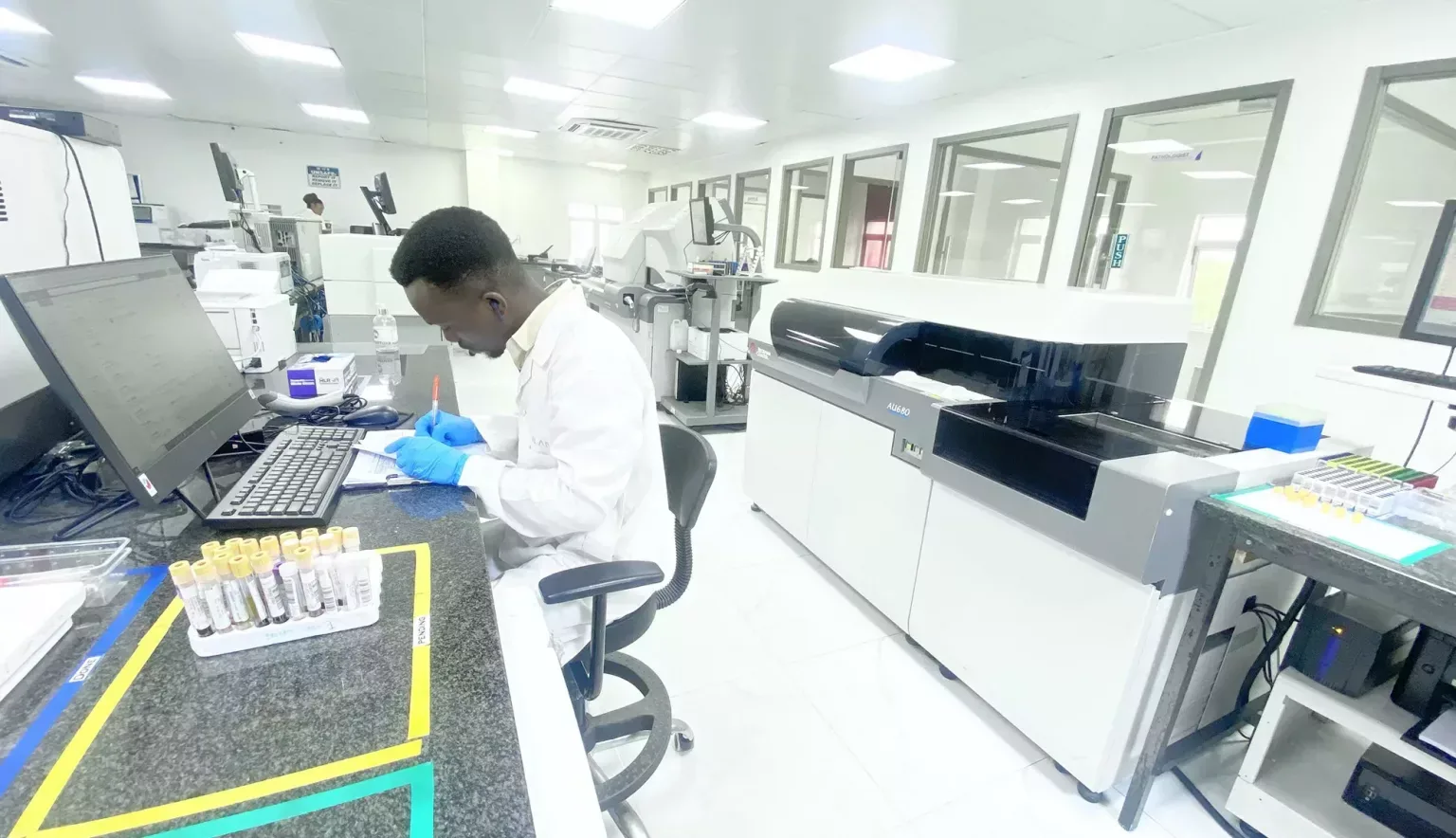Advancing an accessible agenda for public health care, SYNLAB Nigeria is committed to delivering quality pathology services with an unparalleled customer focus. CEO Kenneth Okolie tells us more.
INTRODUCTION
At the end of the day, quality healthcare is not equitably distributed, and last I checked, it is a basic human right.”
The powerful opening words of Kenneth Okolie capture the mission that is at the very core of Nigeria’s leading pathology provider, SYNLAB Nigeria (SYNLAB).
The Nigerian branch of the company operates as a key part of the wider SYNLAB Group, reputed as the largest diagnostic service provider in Europe with a presence in over 40 countries and employing over 20,000 people.
With a strategic focus on providing quality pathology services for human health, SYNLAB is well-established as the market leader in Nigeria with over 32 client centres that include 11 laboratories.
As CEO of the company, Kenneth is passionate about making quality diagnostic services as accessible as possible across Nigeria and West Africa, furthering the sector to become comparable with the developed world.
“Our key priorities revolve around creating more access for people to quality medical diagnostics which is made available as affordably as possible. By understanding that we’re in a resource-challenged environment, we are aware of the obligation this puts on us to ensure we improve access.”
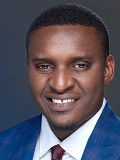
“At the core, what separates SYNLAB and makes it a market leader is its focus on the customer”
Kenneth Okolie, CEO, SYNLAB Nigeria
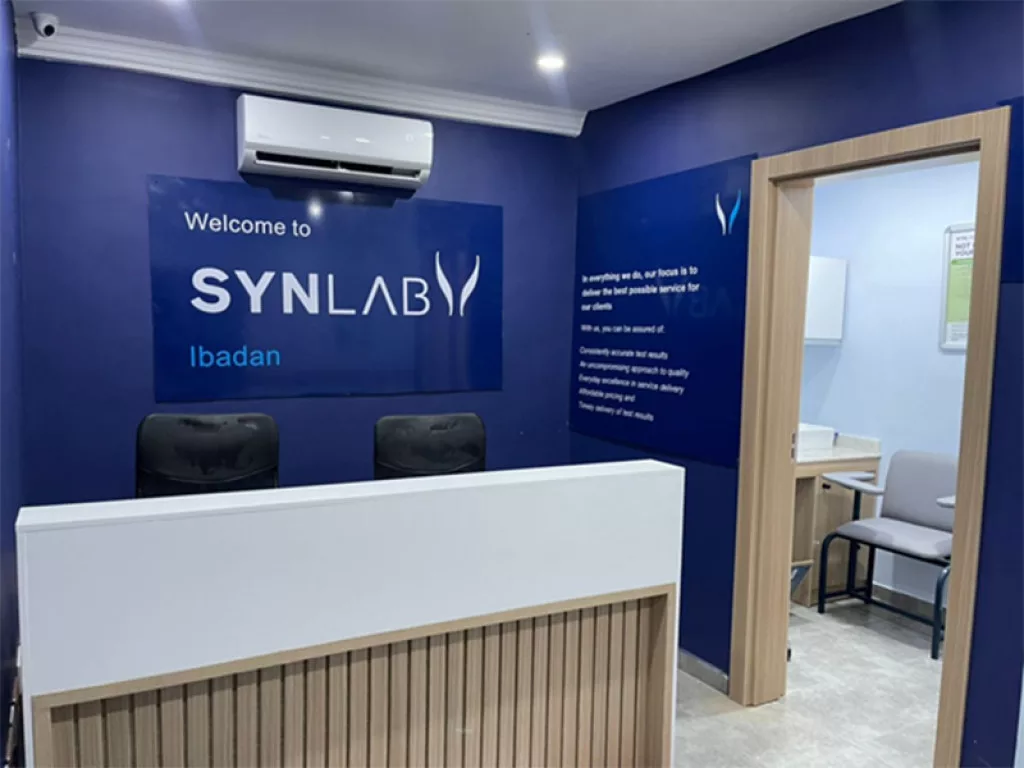
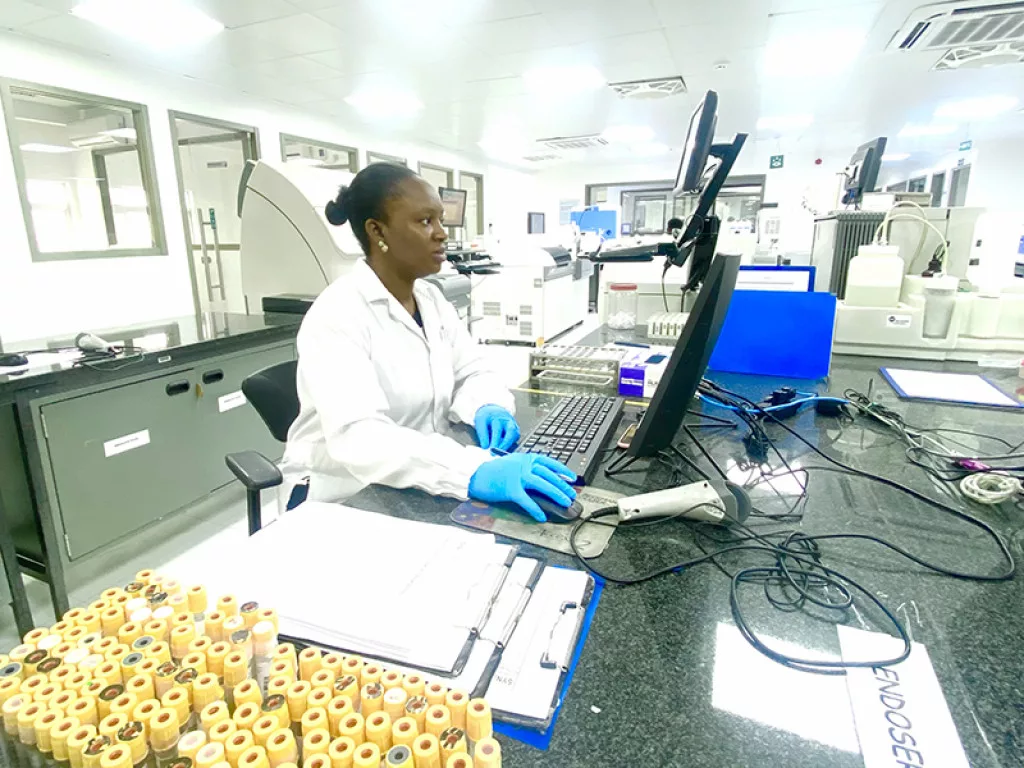
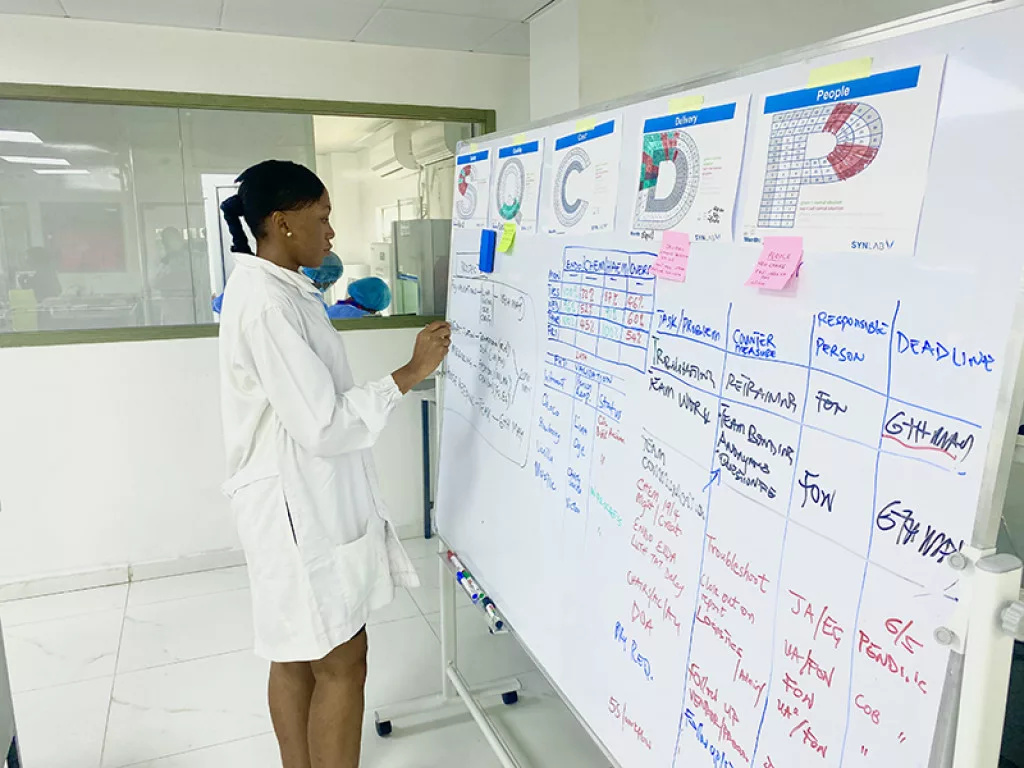
IDENTIFYING OPPORTUNITIES IN CHALLENGES
Both Kenneth and SYNLAB are fully alert to the challenges that prevail in Nigeria’s healthcare sector. But far from fatalistic and stoically undeterred, such impediments are rather seen as a gateway to opportunity.
“To an average person the industry appears filled with challenges, but it’s more a case of opportunity,” he tells us. “There are significant infrastructural issues in that the average public health facility is poorly built, managed, and equipped.
“We also have a lot of logistical challenges with poor road networks and a lack of power, and in the midst of all this, you’re still expected to deliver efficient and effective healthcare!”
Despite this fraught context, Kenneth acclaims that this creates a window for the private sector to intervene.
“The bigger problem that we must address is how to solve these problems without the cost being passed to the client or patient.
“At the core of what we are trying to do in Nigeria is understanding the challenges that bring an opportunity to correct the narrative with regards to healthcare. We don’t believe that we can fix the system, but we believe that we can play a role,” he shares confidently.
In fulfilling these aspirations, SYNLAB pursues an agenda of ambitious growth to expand its footprint and make its quality, customer-centric services as widely accessible as possible.
“One of the crucial things that we’ve decided to do at a very senior level is to focus on making quality healthcare and pathology services available and accessible.
“With this as the backdrop, creating accessibility means that we need to get ourselves into spaces where we are not present since we want to ensure people have access to quality laboratory test results and supporting services.”
This expansion is imperative to the collective health of the nation, as laboratory services play a critical role in clinical and patient care management. Indeed, a late, or a wrong result, can have serious implications for a patient.
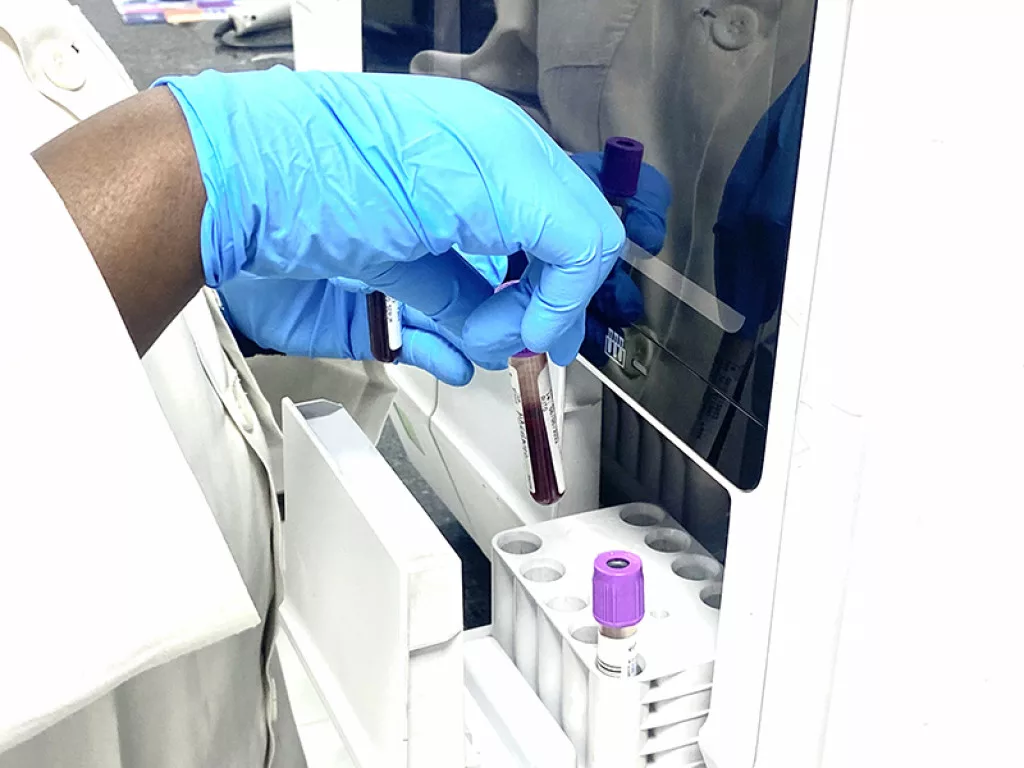
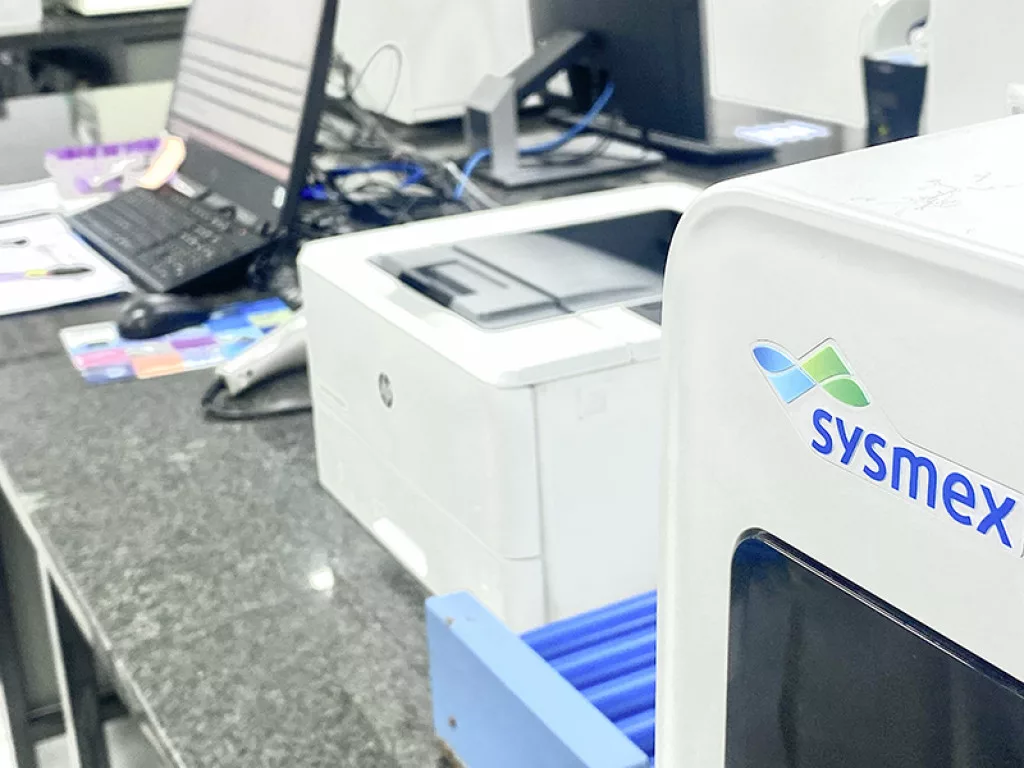
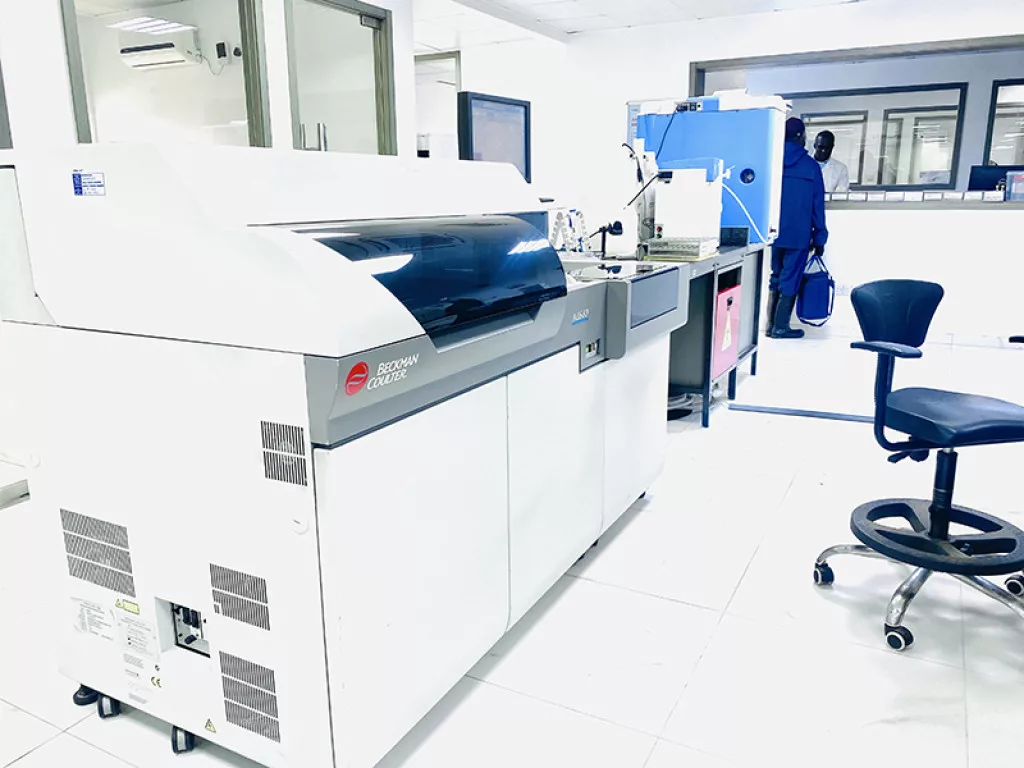
SYNLAB HARNESSING TALENT
As an extension and result of the challenges outlined above, Nigeria is a classic example of ‘brain drain’ in practice, as many of the country’s trained practitioners and medical professionals selectively pursue employment opportunities in Europe or America.
“You can’t blame them!” quips Kenneth. “I think that second only to oil, human resources are probably Nigeria’s biggest export.”
In a bid to combat this and foster local talent, SYNLAB has begun partnering with strategic universities to keep Nigerian medical professionals on native soil. “If I can partner with universities, and influence their training at a foundational level, we’ll be able to create better-skilled employees who are knowledgeable about both modern applications of medicine, and theoretical aspects,” he explains.
“The average time to train a person at SYNLAB before you can attend to patients and get into full operations is six months. If I am losing people to the developed world at a fast rate, it impacts my operations.”
It is a career pathway founded on practical training that is not dissimilar to Kenneth’s own, although the practice has evolved significantly. “Having grown through the system, what I learned in school and what I see on a day-to-day basis are worlds apart.
“Working in a company like SYNLAB offers you access to the best-in-class updates in science and technology. If my team or those that have the opportunity to work at SYNLAB are the only ones that can access this kind of information, the development we’re striving to drive will be extremely slow. But if we’re able to give many people access to this same information, even if they are not employees, they may be able to replicate a path of what we’re doing in other places. In that way, we drive development.”
“We want to be the organisation that inspired change and a new generation to believe that what is possible in the developed world is also possible in Nigeria”
Kenneth Okolie, CEO, SYNLAB Nigeria
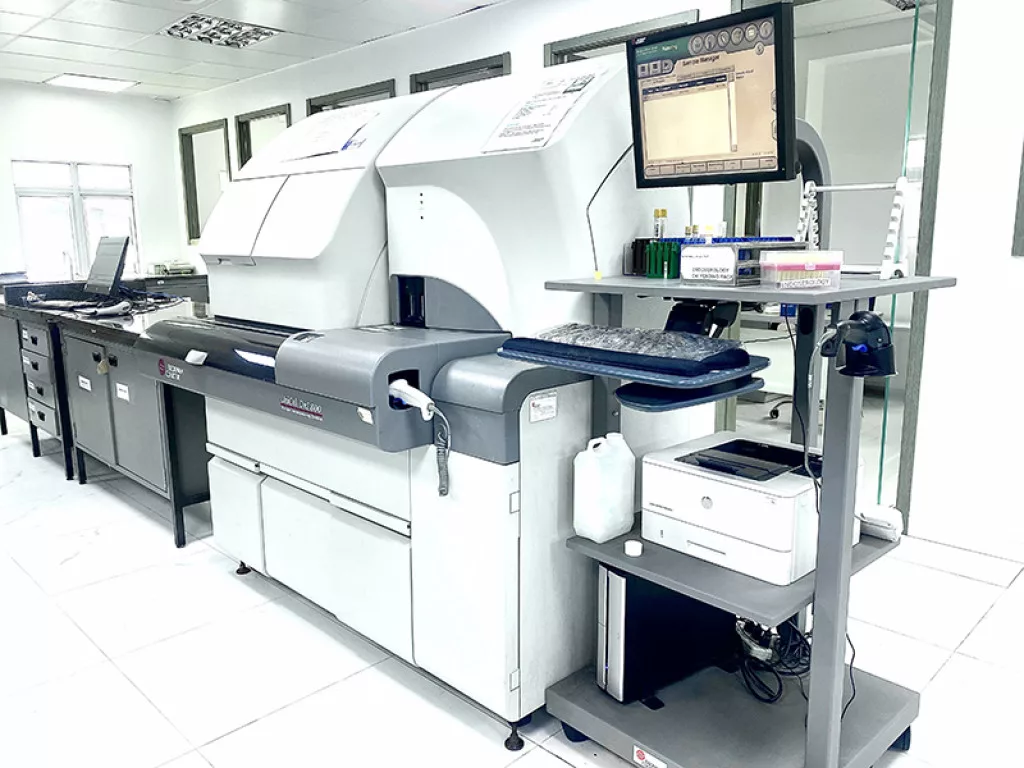
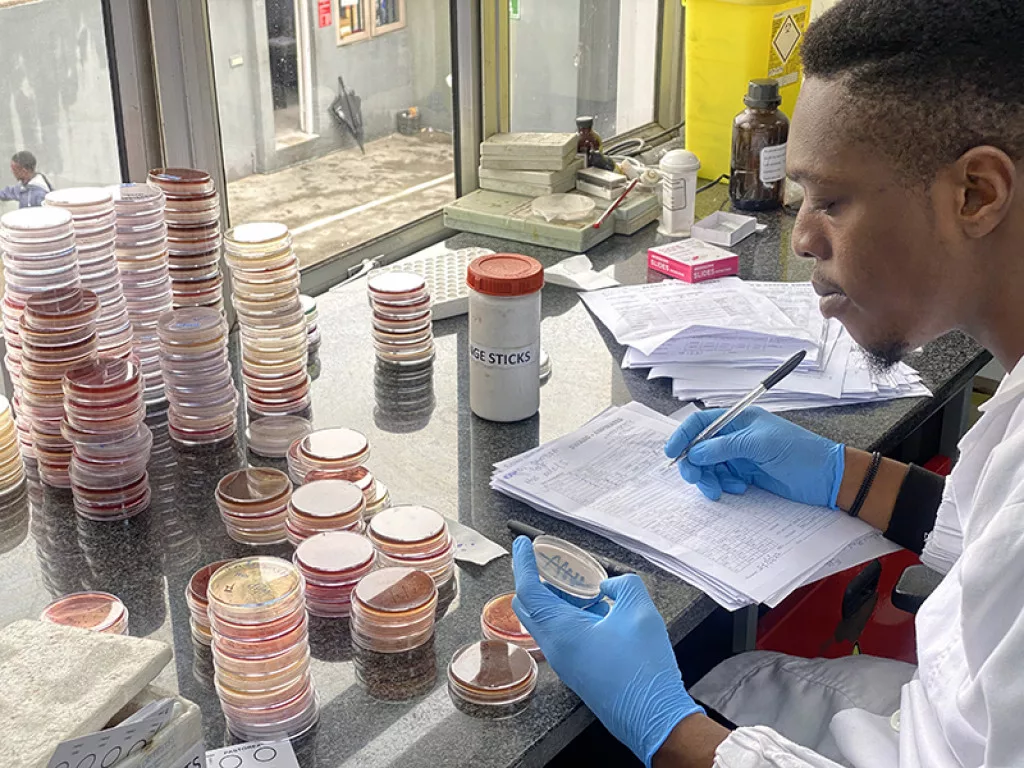

THE DIGITAL DIFFERENCE
Working in conjunction with the talent of human resources is SYNLAB’s advanced incorporation of digitalisation as the foundation of its operations and a critical element in streamlining efficiency for the services it offers.
The company is one of the most digitally focused pathology service providers in Nigeria, but what separates SYNLAB in this respect, is how digitalisation is entirely tailored to the customer, as the central tenet around which the entire business revolves.
“Our focus, 100 percent of the time, is how can we help our customers – doctors, patients, corporate organisations, any customer we have, meet their outcome. Every customer has a unique set of expectations, and that philosophy is what drives us in improving our digitalisation efforts,” says Kenneth.
These efforts encompass management systems and web interfaces to create a paperless system centred on accuracy and efficiency. This eliminates the risk of wrong requests being received by the laboratory and reduces the waste of both time and resources.
“We put time into reviewing our processes and seek ways to automate manual processes. We have been able to innovate in how we can better improve our operations and customer engagement, from the way they order their tests, down to how they receive their results.
“SYNLAB is consistently looking for ways to improve – there is no state of perfection, there is only a state of constant improvement.”
In an age where digitalisation is a common offering for an increasing number of businesses, SYNLAB’s combination of this with unparalleled customer service and an intimate understanding of their clients makes all the difference.
“As a business, it is possible to be functionally responsive, but psychologically non-responsive.
“Anybody could copy our digital software, but because there is a reason behind our action, you cannot copy the soul behind what we do.”
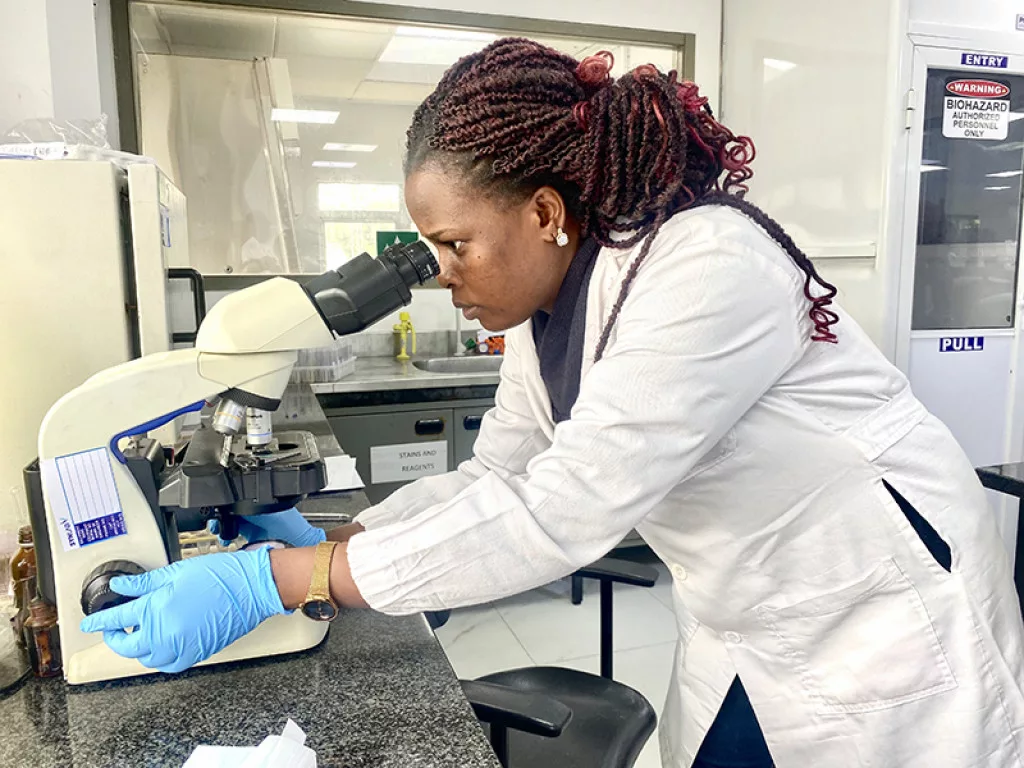
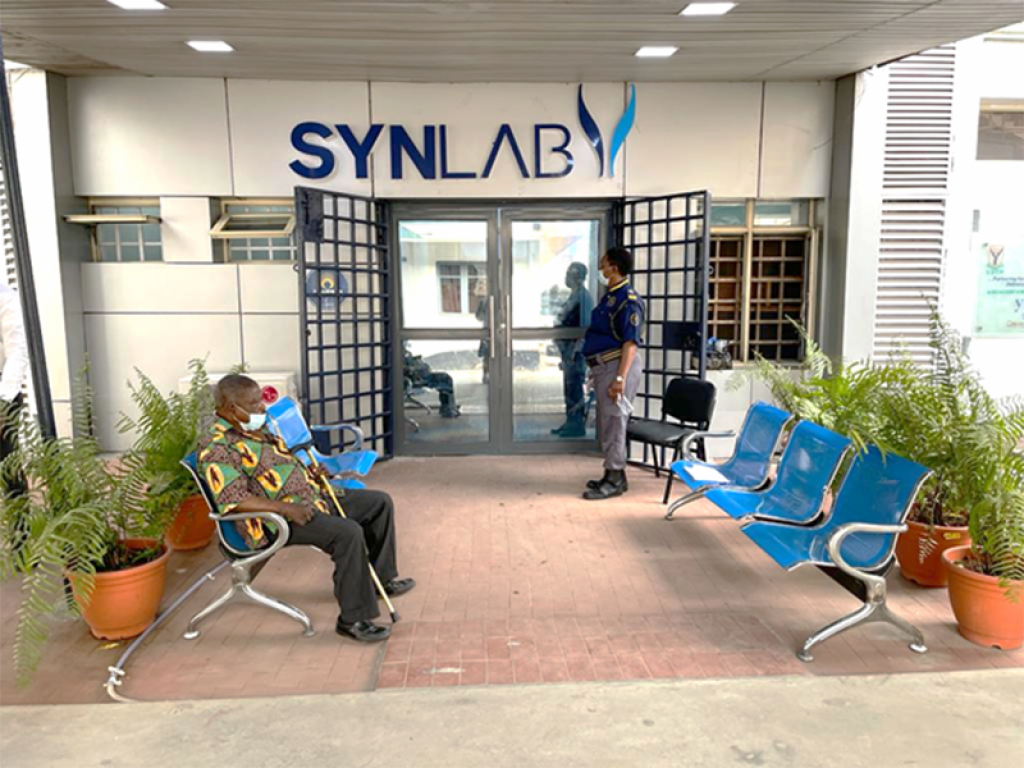
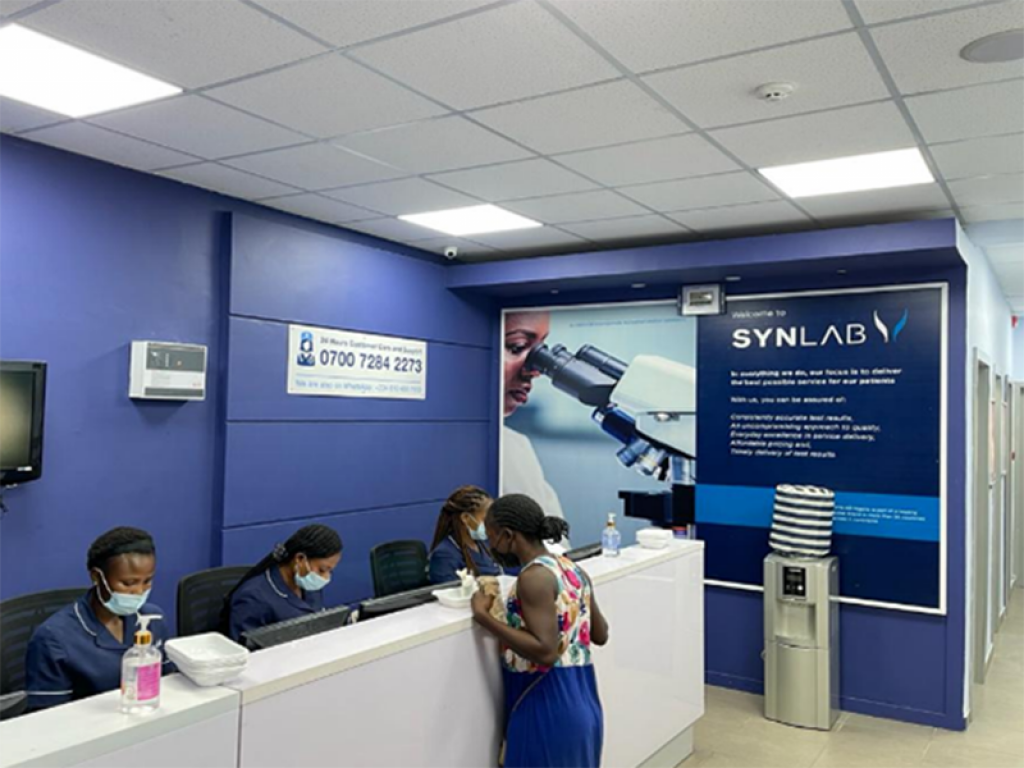
A VISIONARY FUTURE
In the years ahead, SYNLAB will continue to grow as the company champions its vision of providing quality laboratory services to as wide an audience as possible in Nigeria.
“We are helping to build a new way of seeing things. We understand that the actions that we are taking will inspire others to join in and contribute. I want to look back in 20 years and say, we did this, we caused the snowball to start rolling,” closes Kenneth.
“We want to be the organisation that inspired change and a new generation to believe that what is possible in the developed world is also possible in Nigeria. By doing this, we are helping to shape a new narrative.”



